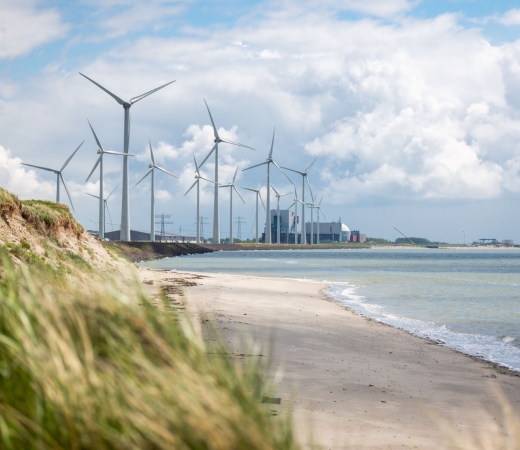Hydrogen Delta

The Hydrogen Delta programme aims to make industry more sustainable by phasing out grey hydrogen through imported and locally produced sustainable hydrogen. The programme has the potential and aspiration to become one of the largest CO2-free hydrogen clusters in the Netherlands, Flanders and Europe. This will be achieved by producing CO2-free hydrogen on a large scale, consuming it locally and importing and exporting it. Hydrogen is crucial for making industrial companies in the region more sustainable and also offers great opportunities in the field of mobility and in the built environment.
Largest industrial hydrogen cluster in the Benelux
The SDR region is home to the largest industrial hydrogen cluster in the Benelux (almost 600 ktonnes per year). The hydrogen currently produced from SMRs and crackers is mainly consumed as an industrial raw material or for high-temperature heat in industry. A transition to low-carbon hydrogen is essential for this region.
For this reason, the main hydrogen consumers, producers, infrastructure companies, the port authority and the relevant provinces in the Netherlands and Belgium have joined forces to realise a large clean hydrogen value chain. The companies, which have been working closely together in the SDR context since 2014, have developed the ambitious Hydrogen Delta programme for further synergy.
Green hydrogen
The main landing point for wind farms in the North Sea is located in the SDR region, creating fertile ground for green hydrogen production. Several electrolyser projects are currently in advanced stages of planning and development. In addition, there are large-scale blue hydrogen and CCU projects in the region.
Role of Smart Delta Resources
Smart Delta Resources contributes to various studies, subsidy programmes and projects within the Hydrogen Delta programme, such as:
- Hydrogen Hub: feasibility, market potential and logistical implications of large-scale import/transhipment/export
- Electrolyser system integration
- Development of local hydrogen infrastructure in the Vlissingen-Terneuzen-Ghent port area with connection to national backbones (Gasunie, North Sea Port, Fluxys)
- Cooperation in initiatives to promote the hydrogen transition for industry
- Representation of the region in national and European working groups and hydrogen programmes
- Support for subsidy processes for hydrogen projects